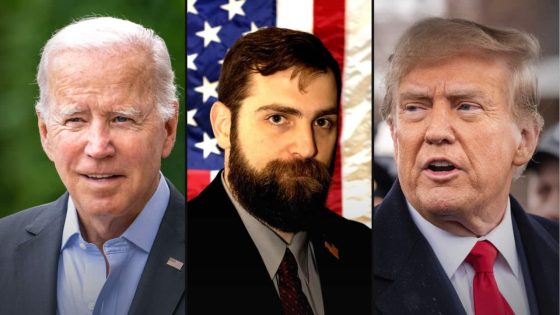Key Points
- A Texas man has changed his name to Literally Anybody Else and is running for president in the United States.
- The man, formerly known as Destin Ebey, said he wanted an option for voters other than Joe Biden or Donald Trump.
- He said people needed the option to vote for somebody who “represents them” rather than the “lesser of two evils”.
A Texas army veteran has legally changed his name in hopes of beating Joe Biden and Donald Trump in
The 35-year-old is running as “literally anybody else”.
He posted a picture of his driver’s license to Facebook, showing the official name change.
The seventh-grade teacher was formerly known as Dustin Ebey but changed his name to provide voters with an option that better reflected the current state of politics in the country.
A Texas man has changed his legal name to “literally anybody else”. Source: Facebook
He said people needed a “neither” option against Trump and Biden, both of whom lead their respective primaries.
“I really want there to be an outlet for folks like me who are just so fed up with this constant power grab between two parties that has no benefit for the common person,” he told US-based WFAA.
“People should have the option to vote for someone who resembles and represents them, not the lesser of two evils. I reject that.”
His website states he represents a “collective desire for change” and allows voters to “demand something different”.
So can ‘literally anybody else’ be elected?
The likelihood of Else running as a legitimate candidate is pretty slim.
In Texas, an independent candidate requires over 113,000 valid signatures from non-primary voters by mid-May to appear on the ballot.
Alternatively, Else has encouraged voters to make him a write-in candidate.
This means he would not appear on the ballot as a candidate, but instead seek election by having voters write his name down.
The latest ABC/Ipsos poll asked voters who they’d trust to lead the country as president, with 36 per cent trusting Donald Trump and 33 per cent favouring Joe Biden.
Meanwhile, 30 per cent trusted neither to lead the country.
Source Agencies



